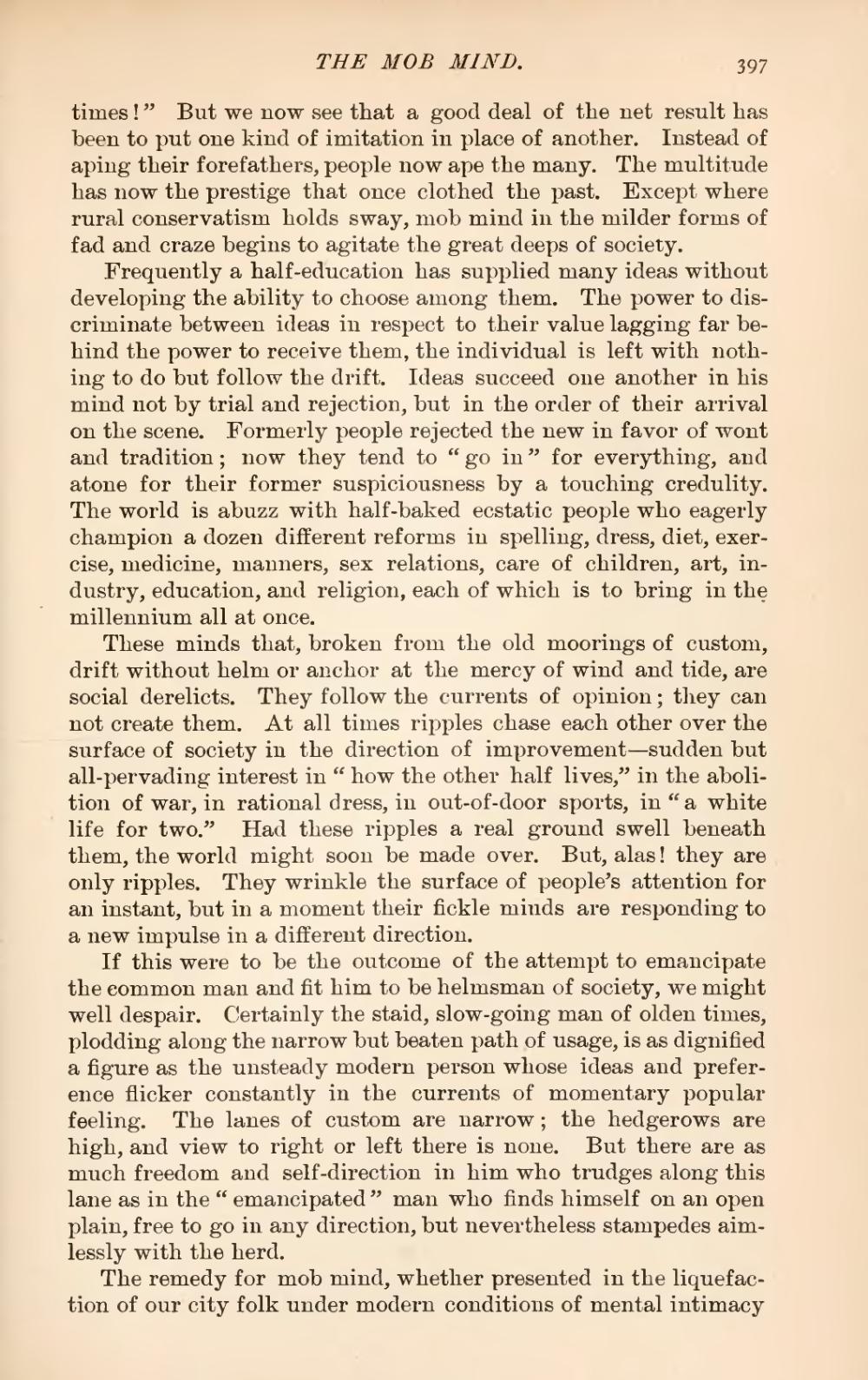times!" But we now see that a good deal of the net result has been to put one kind of imitation in place of another. Instead of aping their forefathers, people now ape the many. The multitude has now the prestige that once clothed the past. Except where rural conservatism holds sway, mob mind in the milder forms of fad and craze begins to agitate the great deeps of society.
Frequently a half-education has supplied many ideas without developing the ability to choose among them. The power to discriminate between ideas in respect to their value lagging far behind the power to receive them, the individual is left with nothing to do but follow the drift. Ideas succeed one another in his mind not by trial and rejection, but in the order of their arrival on the scene. Formerly people rejected the new in favor of wont and tradition; now they tend to "go in" for everything, and atone for their former suspiciousness by a touching credulity. The world is abuzz with half-baked ecstatic people who eagerly champion a dozen different reforms in spelling, dress, diet, exercise, medicine, manners, sex relations, care of children, art, industry, education, and religion, each of which is to bring in the millennium all at once.
These minds that, broken from the old moorings of custom, drift without helm or anchor at the mercy of wind and tide, are social derelicts. They follow the currents of opinion; they can not create them. At all times ripples chase each other over the surface of society in the direction of improvement—sudden but all-pervading interest in "how the other half lives," in the abolition of war, in rational dress, in out-of-door sports, in "a white life for two." Had these ripples a real ground swell beneath them, the world might soon be made over. But, alas! they are only ripples. They wrinkle the surface of people's attention for an instant, but in a moment their fickle minds are responding to a new impulse in a different direction.
If this were to be the outcome of the attempt to emancipate the common man and fit him to be helmsman of society, we might well despair. Certainly the staid, slow-going man of olden times, plodding along the narrow but beaten path of usage, is as dignified a figure as the unsteady modern person whose ideas and preference flicker constantly in the currents of momentary popular feeling. The lanes of custom are narrow; the hedgerows are high, and view to right or left there is none. But there are as much freedom and self-direction in him who trudges along this lane as in the "emancipated" man who finds himself on an open plain, free to go in any direction, but nevertheless stampedes aimlessly with the herd.
The remedy for mob mind, whether presented in the liquefaction of our city folk under modern conditions of mental intimacy

